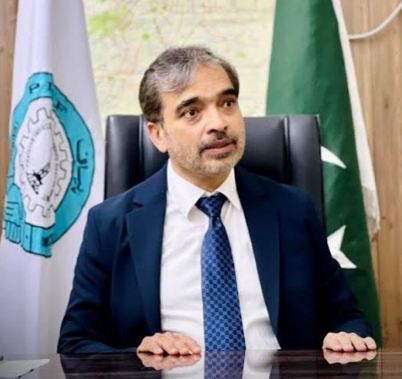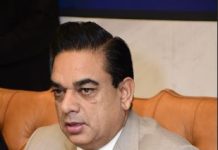ISLAMABAD, APR 27 /DNA/ – The Pakistan Industrial and Agricultural Federation (PIAF) Chairman Faheemur Rehman Saigol on Sunday, while addressing the ongoing developments in Pakistan’s economic landscape, emphasized the crucial need for sustained structural reforms to ensure Pakistan’s long-term economic growth, stability, and resilience. He referred to the recent Financial Stability Review (FSR) by the State Bank of Pakistan (SBP), which underscored that continued progress in structural reforms is necessary to build external buffers, reduce financing risks, and enhance financial stability in the country.
The PIAF Chairman Fahimur Rehman Saigol, Senior Vice chairman Nasrullah Mughal and Vice chairman Tahirm Manzoor Chaudhry in a joint statement commended the SBP for its optimistic outlook on the prospects of financial stability in the near term, but cautioned that global uncertainties, particularly those arising from protectionist policies and their effects on global trade and financial conditions, may challenge Pakistan’s domestic economy. He emphasized that despite the positive indicators in the country’s financial sector, there must be a coordinated effort to sustain these gains, especially through policy reforms that promote an enabling environment for businesses and investors.
“PIAF strongly believes that the future of Pakistan’s economy rests on structural reforms that involve all sectors of the economy, particularly industrial and agricultural sectors. The government must recognize the importance of working closely with business leaders and private sector stakeholders to develop policies that foster growth, improve ease of doing business, and streamline regulatory processes,” said Saigol.
Referring to the SBP’s recent findings, Saigol applauded the resilience of Pakistan’s banking sector, which, according to stress tests conducted by the central bank, is expected to withstand severe shocks over the next three years while maintaining minimum capital adequacy standards. He noted that this resilience is crucial for maintaining investor confidence and facilitating credit flow to the private sector.
“Pakistan’s banking sector has shown remarkable strength, but we must continue to focus on improving financial services, enhancing access to credit, and reducing barriers for businesses to expand,” added Saigol. “The SBP’s efforts to ensure the stability of the financial system, particularly through proactive regulatory measures, are commendable, but the real catalyst for growth will be in structural changes that allow businesses to thrive.”
The PIAF Chairman also highlighted the significant decrease in the Consumer Price Index (CPI), which dropped from 28.7 percent in March 2024 to 7.2 percent in March 2025. Saigol noted that the SBP’s decision to reduce the policy rate by 1,000 basis points to 12 percent in January 2025 was a positive step in easing financial conditions. This reduction, combined with improvements in the external account and stable exchange rates, is expected to boost demand for private sector credit and enhance repayment capacity for borrowers.
“The recent policy rate cuts by SBP are a step in the right direction, but we must ensure that the benefits of these policy changes are felt across the economy, particularly by industries that drive job creation and economic growth,” said Saigol. “The private sector remains the engine of Pakistan’s economy, and the government should continue to support business growth through conducive policy frameworks and fiscal measures.”
Saigol also praised the government’s continued commitment to the International Monetary Fund (IMF) program, with the first review of the IMF’s Extended Fund Facility (EFF) in March 2025 acknowledging strong program implementation. He reiterated the importance of this support in ensuring macroeconomic stability, which is vital for attracting foreign investment and driving economic recovery.
Additionally, Saigol emphasized the improvement in SBP’s foreign exchange reserves, which increased by 41.4 percent to reach $11.2 billion in February 2025. This growth in reserves has contributed to maintaining rupee-dollar parity and easing financial conditions, which are essential for businesses engaged in import-export activities.

















